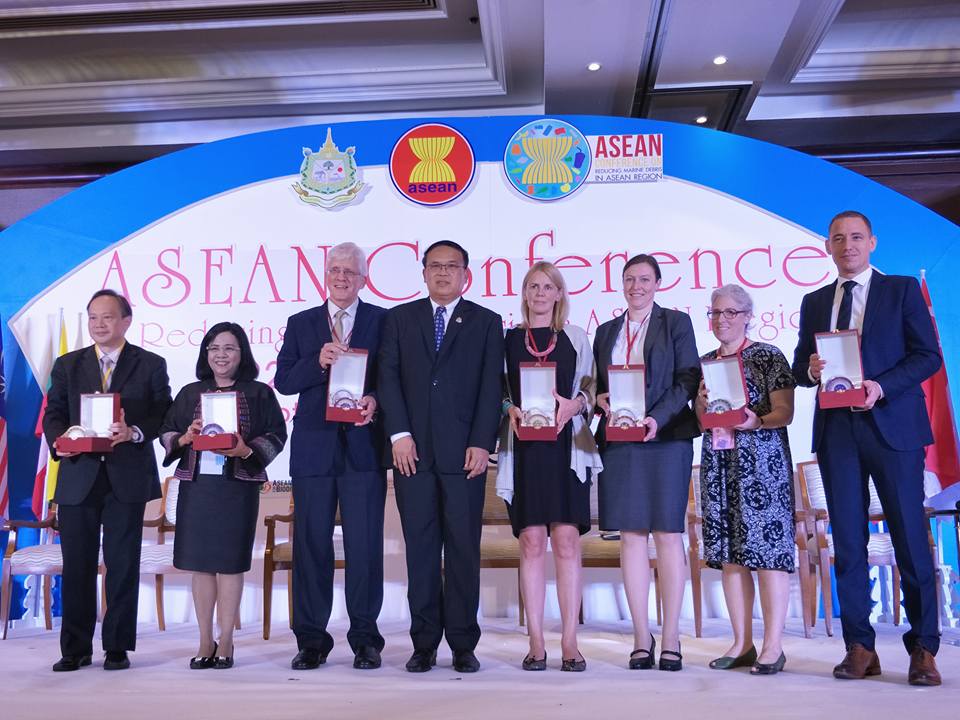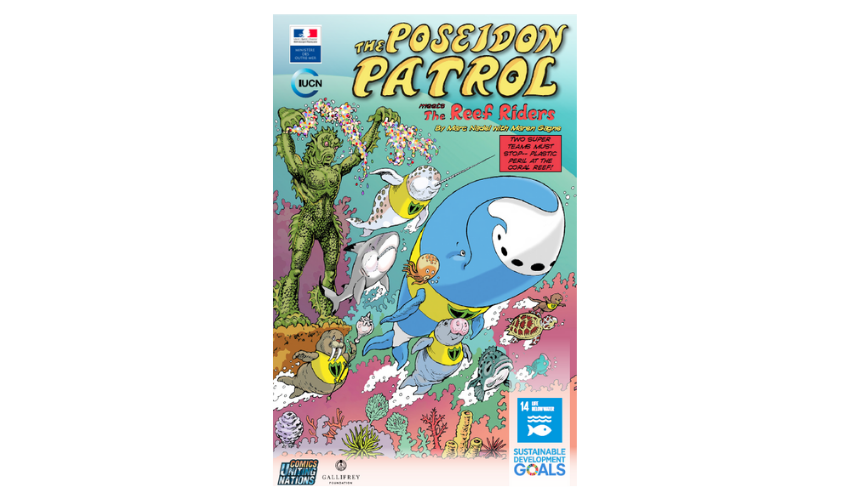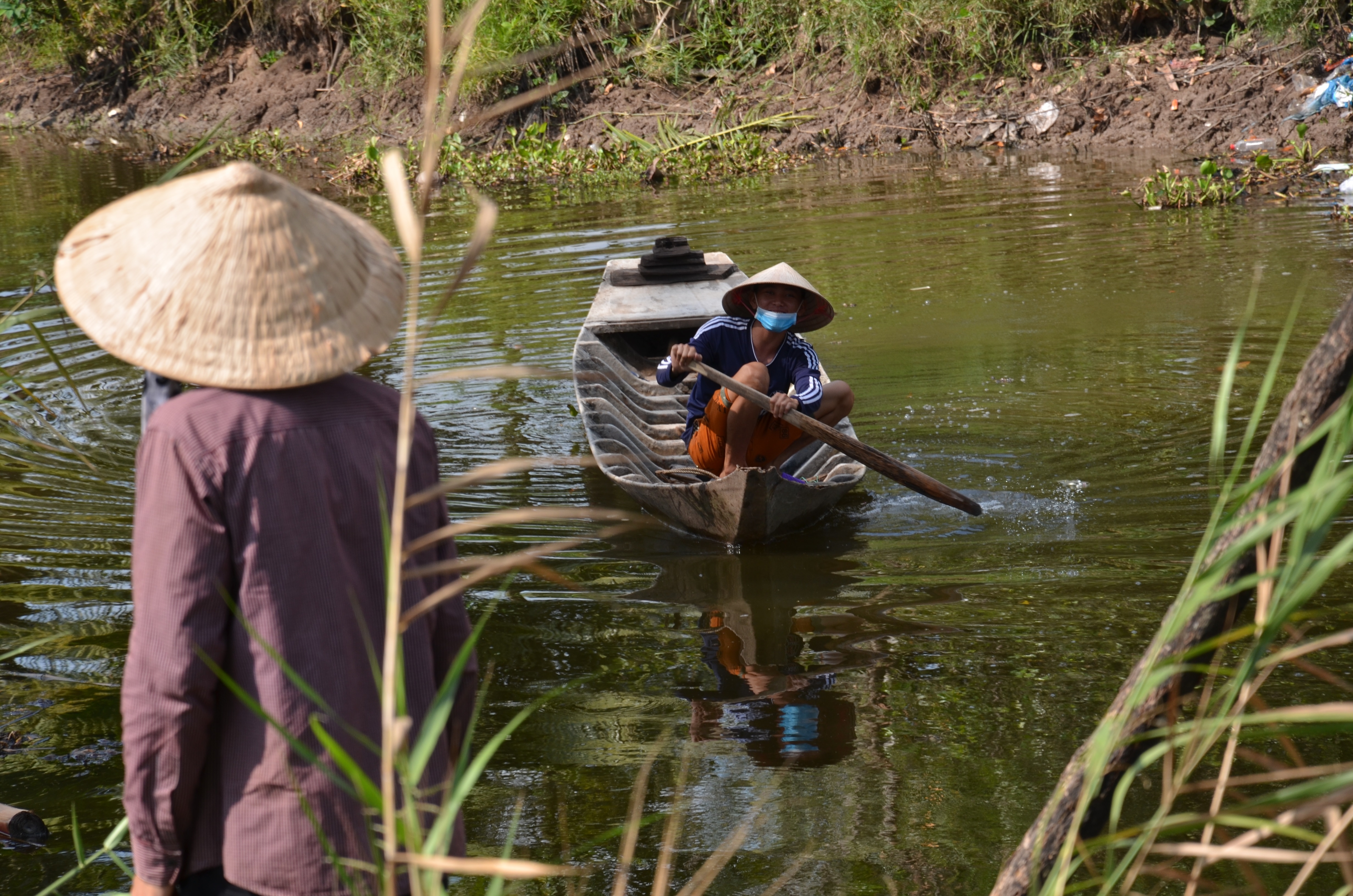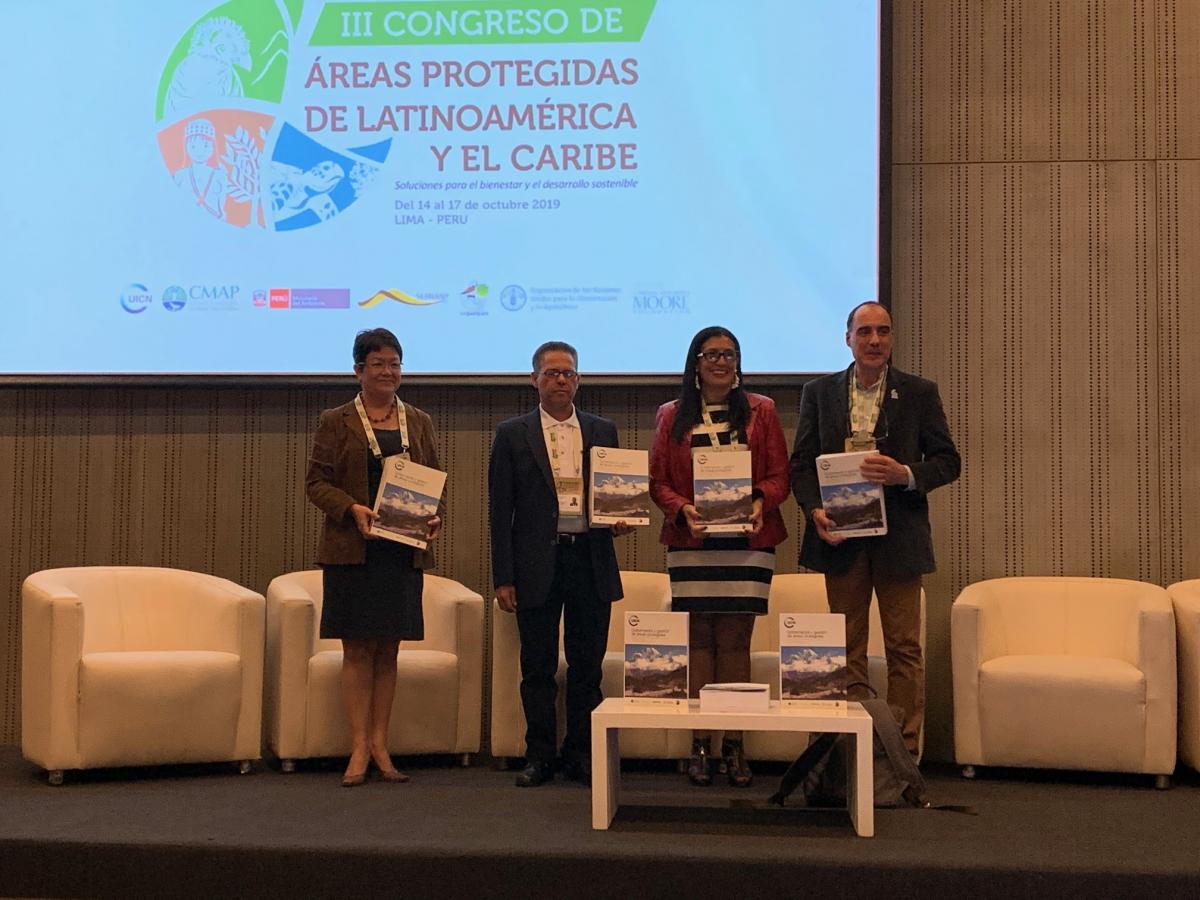IUCN co-hosted ASEAN Conference on Reducing Marine Debris
The ASEAN Conference on Reducing Marine Debris in ASEAN Region, organised by the Department of Marine and Coastal Resources and the Ministry of Natural Resources and Environment (MONRE) of Thailand in coordination with the ASEAN Secretariat and IUCN, was held on the 22-23 November 2017 in Phuket, Thailand. Over 250 participants, including the Minister of MONRE,Gen Surasak Kanjanarat, who chaired the opening of the conference, attendees from ASEAN Member States, international conservation groups, government partners, researchers and local community members, gathered to discuss marine debris pollution and methods to address this growing issue.
The conference reviewed the current status of marine debris pollution at local, regional, and global scales, and provided an opportunity for participants to exchange knowledge on the most effective methods for addressing marine debris, such as instituting a fee for single use plastic bags. Through the identification of gaps and challenges, national governments, local municipalities, non-profit organizations and the private sector can work together to develop innovative solutions.
The event included an exhibition which highlighted the marine biodiversity of ASEAN member states and the initiatives in place to address marine debris. Locally, the Thai Department of Marine and Coastal Resources has campaigned to eliminate plastic cap seals on water bottles, and recently established “Smoke-Free Beaches” to reduce cigarette butts in the sea. An IUCN booth also displayed publications on marine ecosystems and the impact of marine debris on coastal communities.
“It is important to note that the top 20 countries ranked by size of mismanaged plastic waste include six ASEAN member states. Marine debris pollution is a regional concern which requires regional action,” said H.E. Vongthep Arthakaivalvatee, Deputy Secretary General of ASEAN, at the opening ceremony. ]Asia has recently experienced a rapid growth in plastic production and use. Though the per capita use may be lower than in other regions, there is a lack of adequate management, amplifying the need for a solution.
Current governance strategies and instruments provide a fragmented approach that does not adequately address marine litter and microplastics. The COBSEA Regional Action Plan on Marine Litter 2008 aims to address this shortfall in the region, with signatories including Cambodia, China, Indonesia, Korea, Malaysia, Philippines, Singapore, Thailand and China. An ASEAN-China Conference on Reducing Marine Debris in the South China Sea has also been proposed for 2018.
To effectively address regional marine waste, ASEAN member states must work together to share best practices and lessons learnt. It is only through multiple stakeholder collaboration and communication that the region can successfully stop plastic debris from entering the global oceans.
“The issue of Marine Plastic is well aligned with IUCN’s global priorities. Since ASEAN is really a region of focus to make an impact, IUCN will be working closely with Thai government and other ASEAN countries to support its action plan and roadmap for implementation in the years to come,” said Petch Manopawitr, Deputy of IUCN Indo-Burma Group.
Please click on this link for full report.
The following publications, which can be downloaded, were distributed at the forum.
Primary Microplastics in the Oceans: a Global Evaluation of Sources





